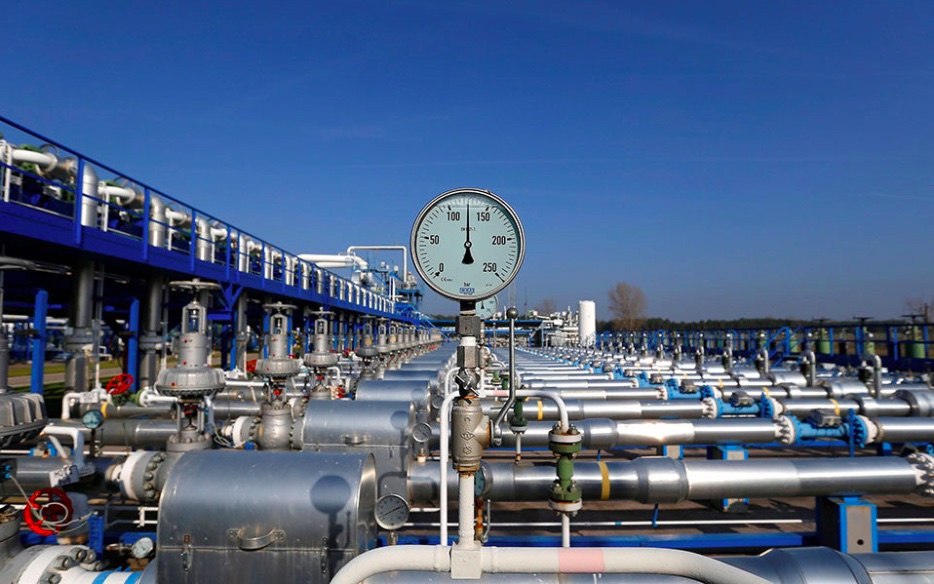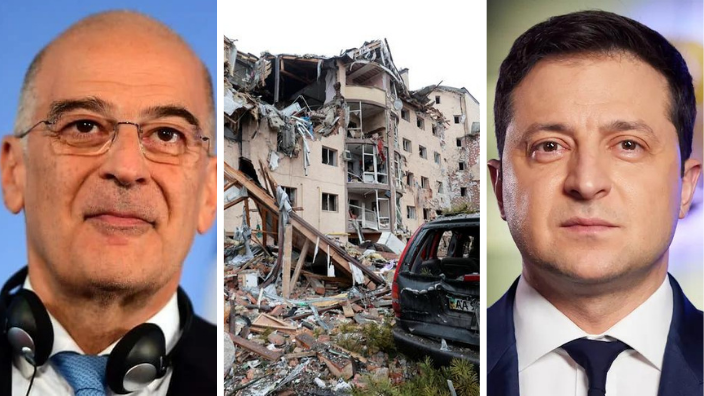Ukrainian President, Volodymyr Zelenskyy, expressed his gratitude to Greek Foreign Minister, Nikos Dendias, for his willingness to lead a humanitarian mission to the besieged Ukrainian city of Mariupol once permission is granted by both Ukraine and the invading Russians.
“He is the first European official who has decided to support the work of the humanitarian corridors to Mariupol, in order to save our people in the city and transport humanitarian aid, which is very important for everyone there,” Zelenskyy said during a speech in the Italian parliament on Tuesday.
Dendias announced his intention to lead a humanitarian mission to Mariupol on Tuesday and said he had already sent an official notice to the Ukrainian side to facilitate the mission’s passage.
READ MORE: Greek Foreign Minister to lead humanitarian aid mission to Mariupol.
“I plan to escort this assistance myself, in coordination with the president of the International Committee of the Red Cross, Peter Maurer, with whom we are already in contact,” Dendias said at the time.
Dendias said that Greece’s priority was to protect unarmed civilians and ethnic Greeks living in Mariupol.
Ukrainian, Greek FMs agree on tighter sanctions against Russia:
This comes as Ukrainian Foreign Minister, Dmytro Kuleba, said on Wednesday he had agreed with Dendias that “sanctions on Russia must be further elevated.”
The two leaders spoke over the phone about the tougher sanctions, with Kuleba later writing on Twitter that “Russia must pay the price for its ongoing war against Ukraine.”
The Ukrainian Foreign Minister also expressed his gratitude to Dendias for “his personal efforts to provide Mariupol and its Greek community with humanitarian aid.”
READ MORE: Greek Consul in Mariupol returns to Greece after successful evacuation from Ukraine.
EU moves towards joint natural gas purchase:
According to Ekathimerini, the European Union has also agreed to move towards the joint purchase of natural gas to avoid another energy crisis tied to its dependency on Russian energy.

The 27-nation bloc acknowledges it has been far too reliant on Russia for natural gas and oil and has been struggling to find the right mix of sanctions to punish the Kremlin for invading Ukraine while still requiring Russian fossil fuels.
With energy prices high and supplies low, the EU is looking at its last crisis – the COVID-19 pandemic – as a blueprint. The member states joined up to buy vaccines in huge quantities for an equitable distribution.
“I expect that this would be the approach which should be also endorsed by the heads of states and government,” EU Commission Vice President, Maros Sefcovic, said during a two-day EU summit.
READ MORE: EU leaders meet in Versailles to discuss Ukraine war and energy independence.

